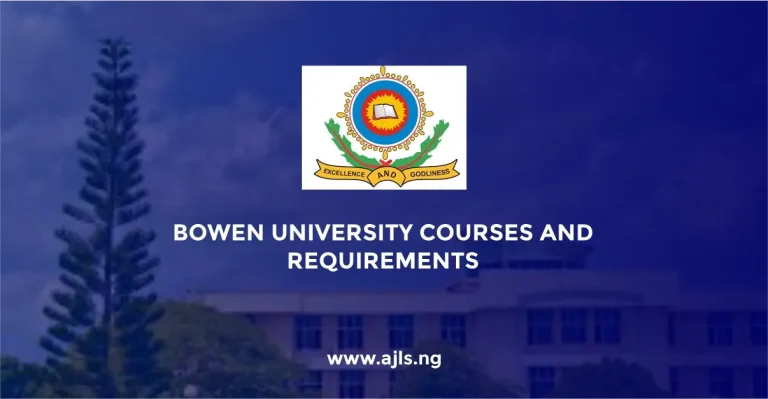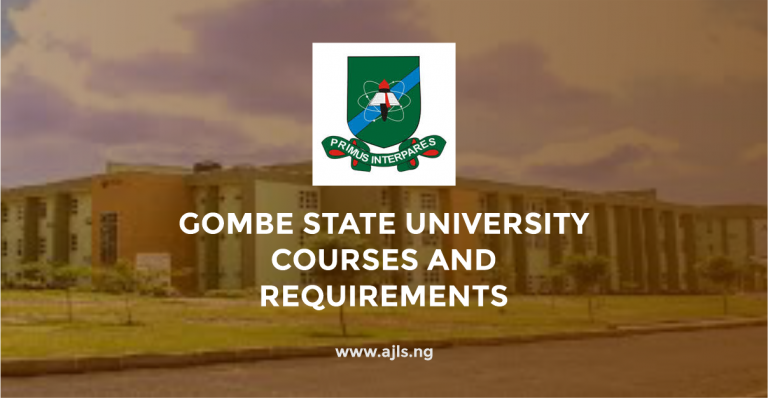WAEC Syllabus For French 2025

WAEC has released the examination syllabus for all subjects, including French. If you registered for French, it’s important to get the WAEC Syllabus for French, use it wisely, and study with a clear focus. The French exam isn’t just about writing; you will also face oral tests, listening comprehension, and more. Now is the time to make the most of your revision as the examination date is fast approaching.
Teachers and tutors will also find this syllabus useful in guiding students effectively to excel in the exam. In this post, we have provided the full WAEC French Syllabus for easy access. You can download it to your device to improve your study or teaching. You will also find a list of recommended books to help you prepare better.
WAEC Syllabus For French 2025
The exam consists of three papers: Papers 1, 2, and 3. Papers 1 and 2 will be taken together in a single sitting.
- Paper 1: Contains 40 multiple-choice questions, to be completed in 1 hour, carrying 40 marks.
- Paper 2: Divided into two sections, each with three essay questions. Candidates must answer one question from each section, making a total of two questions. The paper lasts 1 hour 15 minutes and is worth 40 marks.
- Paper 3: Assesses listening comprehension, reading, and conversation skills. Each candidate will have 40 minutes to complete this section, which is worth 50 marks.
| PAPER | SECTION | DESCRIPTION |
|---|---|---|
| PAPER 1 | Section A: Comprehension | Tests candidates’ ability to read and understand French passages. Two 150-word passages with five multiple-choice questions each. Candidates must answer all questions. |
| Section B: Structure | Tests candidates’ use of French words, expressions, and structural patterns in communication. 30 short questions to be answered. | |
| PAPER 2 | Section A: Essay | Tests candidates’ ability to write freely and correctly on general topics using appropriate grammar and style. There will be three questions ans candidates answer one. Expected length: 100 words. |
| Section B: Letter Writing | Assesses candidates’ ability to write letters in correct French. There will be three questions ans candidates answer one. Expected length: 100 words. | |
| PAPER 3 | Listening Comprehension | A 200-word passage is to be read aloud by the examiner twice. Candidates study questions for 3 minutes before the second reading. 7 minutes to answer 10 questions, which may include multiple-choice, open-ended, transformation, and substitution. |
| Reading | Tests candidates’ ability to read aloud fluently with correct pronunciation. A 100-word passage will be provided. Candidates read once at a normal pace. | |
| Conversation | A 10-minute test covering dialogue and exposition on general topics. Dialogue: Candidates answer at least 10 questions. Exposition: Candidates make at least 5 sentences on a given topic. | |
| NOTES ON SYLLABUS | Grammar Topics | |
| Parts of Speech | Articles (definite, indefinite, partitive) with gender and number where applicable. | |
| Verbs | Regular and irregular verbs, moods, tenses, and expressions like “avoir faim” and “venir de + infinitive”. | |
| Nouns | Complements, gender, number. | |
| Pronouns | Personal, possessive, indefinite, demonstrative, relative, impersonal. | |
| Adjectives | Possessive, demonstrative, indefinite, interrogative (agreement and position). | |
| Adverbs | Formation, position, and special adverbs like mal, vite, fort, tout. | |
| Negatives | Negative expressions (ne… pas, ne… rien, ne… jamais, etc.). | |
| Conjunctions | Common ones: et, mais, donc, ou, parce que, etc. | |
| Prepositions | à, de, sur, en, devant, etc. | |
| Sentence Patterns | Declarative, interrogative, exclamative, etc. | |
| Voice | Active/passive. | |
| Speech | Direct and reported speech. | |
| Sentence Types | Compound and complex sentences. | |
| Idiomatic Expressions & Proverbs | Understanding and usage. | |
| Forms of Writing | Formal and informal. | |
| Context and Meaning | Expressing politeness, disgust, disappointment, etc. | |
| Figures of Speech | Similes, metaphors, hyperboles, etc. | |
| Actes de Parole | Expressing emotions like deception, approval, disgust, surprise, pleasure, regret, etc. |
Recommended Text For French WAEC 2025
Here are the texts recommended for revision and studies:-
| Category | Books/Resources |
|---|---|
| Course Books | – De Grandsaigne, J.: France-Afrique 4, Lagos, Macmillan |
| – Plaisant, Chantal, et al.: Trans Afrique 3, Lagos, Macmillan | |
| – Ajiboye, Tunde et al.: Nouvel Horizon 4, Ibadan, Bounty Press Ltd. | |
| – Mazauric, Catherine et al.: On y va 3, Ibadan, Spectrum Books | |
| – Berard, Evelyne et al.: Tempo 1 & 2, Didier, Hatier | |
| – Task Force (MEST): Et en français 1 – 3, Freetown | |
| – Girardet J. & Pécheir J.: écho junior A2 méthode de français, Paris: CLÉ Internationale | |
| General Grammar Books | – Ajiboye, T.: Companion to French Grammar, Ilorin, Info-Links Publishers |
| – Ferrar H. A.: French Reference Grammar, Oxford University Press | |
| – Dangnaud-Macé, P & Sylès, G.: Le Français sans faute, Paris, Hatier | |
| – Le Nouveau Bescherelle: La grammaire pour tous, Paris: Hatier | |
| – Soyoye, F. A.: Manuel de conjugaison de verbes, Sophire Ed. Resources | |
| – Any other useful grammar books | |
| Oral Practice | – Ajiboye, T.: An Introduction to Practice in Oral French, Revised edition, Ibadan, Bounty Press Ltd. |
| – Grandsaigne, J.: France Afrique 5, Lagos, Macmillan | |
| – Adegbilero, L. M.: Teaching Yourself French (with cassette/CD), Revised edition, Ibadan, Bounty Press Ltd. | |
| – Chamberlain, Alan & Steele Ross: Guide pratique de la communication, Paris, Didier | |
| – Any other useful document designed for Oral Practice | |
| Literature (Ghana only) | – J. N. D. Dodoo: La Belle Fleure et d’autres Histoires, Accra |
| – Tunde Ajiboye: Olurounbi ou Le Prix d’un Pari | |
| – Hector Malot: Sans Famille, Paris | |
| Dictionaries/Glossaries | French Dictionaries: |
| – Micro Robert/Petit Robert | |
| – Petit Larousse | |
| – Dictionnaire du français fondamental pour l’Afrique | |
| French-English/English-French Dictionaries: | |
| – Shorter Harraps | |
| – Collins | |
| – Cassell’s | |
| French Glossaries: | |
| – Français Fondamental for West Africa, WAEC, Accra, Black Mask Ltd. |
Using the syllabus to prepare for your examination is important. It helps you focus on key areas and structure your learning, bringing you closer to achieving your desired grades. Here are some helpful tips to improve your French skills and boost your exam performance:-
- Practice reading out loud to improve pronunciation and fluency.
- Engage in conversations in French with your peers to build confidence in speaking.
- Write essays on different topics to enhance your grammar and writing skills.
- Use past questions to test your ability and familiarize yourself with exam formats.
- Learn punctuation and verb conjugations, as they are essential for both writing and speaking.
- Ask questions when you feel stuck; seeking clarification will strengthen your understanding.
Nous vous souhaitons bonne chance!
If you have questions, please ask them in the comments and we will respond shortly. Share this WAEC Syllabus for French with other candidates. You can also visit our page to see other syllabi for the WAEC examinations.





